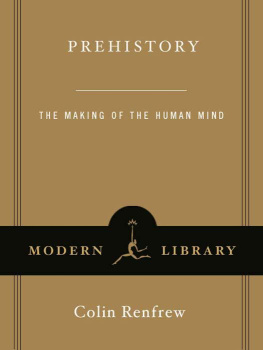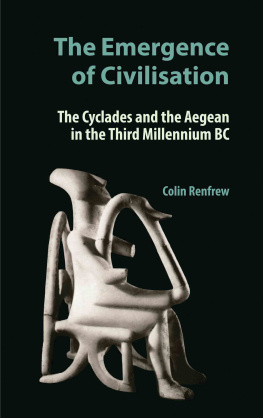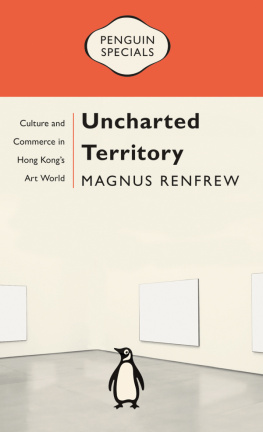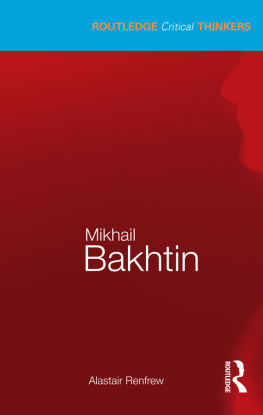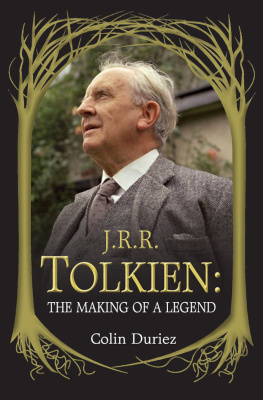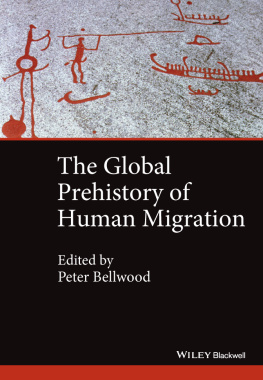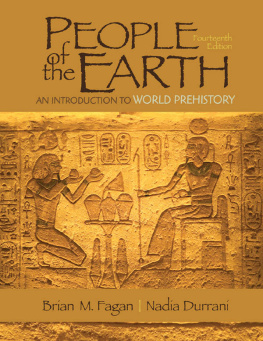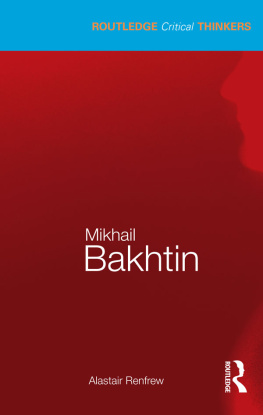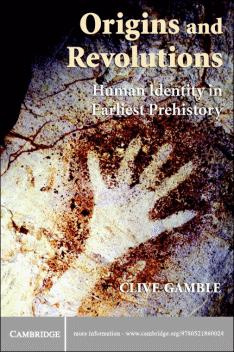Colin Renfrew - Prehistory: The Making of the Human Mind
Here you can read online Colin Renfrew - Prehistory: The Making of the Human Mind full text of the book (entire story) in english for free. Download pdf and epub, get meaning, cover and reviews about this ebook. year: 2008, publisher: Random House Publishing Group, genre: Science fiction. Description of the work, (preface) as well as reviews are available. Best literature library LitArk.com created for fans of good reading and offers a wide selection of genres:
Romance novel
Science fiction
Adventure
Detective
Science
History
Home and family
Prose
Art
Politics
Computer
Non-fiction
Religion
Business
Children
Humor
Choose a favorite category and find really read worthwhile books. Enjoy immersion in the world of imagination, feel the emotions of the characters or learn something new for yourself, make an fascinating discovery.
- Book:Prehistory: The Making of the Human Mind
- Author:
- Publisher:Random House Publishing Group
- Genre:
- Year:2008
- Rating:5 / 5
- Favourites:Add to favourites
- Your mark:
- 100
- 1
- 2
- 3
- 4
- 5
Prehistory: The Making of the Human Mind: summary, description and annotation
We offer to read an annotation, description, summary or preface (depends on what the author of the book "Prehistory: The Making of the Human Mind" wrote himself). If you haven't found the necessary information about the book — write in the comments, we will try to find it.
Colin Renfrew: author's other books
Who wrote Prehistory: The Making of the Human Mind? Find out the surname, the name of the author of the book and a list of all author's works by series.
Prehistory: The Making of the Human Mind — read online for free the complete book (whole text) full work
Below is the text of the book, divided by pages. System saving the place of the last page read, allows you to conveniently read the book "Prehistory: The Making of the Human Mind" online for free, without having to search again every time where you left off. Put a bookmark, and you can go to the page where you finished reading at any time.
Font size:
Interval:
Bookmark:

C ONTENTS
M ODERN L IBRARY C HRONICLES
Currently Available
K AREN A RMSTRONG on Islam
D AVID B ERLINSKI on mathematics
R ICHARD B ESSEL on Nazi Germany
I AN B URUMA on modern Japan
P ATRICK C OLLINSON on the Reformation
F ELIPE F ERNNDEZ-A RMESTO on the Americas
L AWRENCE M. F RIEDMAN on law in America
P AUL F USSELL on World War II in Europe
F. G ONZLEZ -C RUSSI on the history of medicine
P ETER G REEN on the Hellenistic Age
A LISTAIR H ORNE on the age of Napoleon
P AUL J OHNSON on the Renaissance
F RANK K ERMODE on the age of Shakespeare
J OEL K OTKIN on the city
H ANS K NG on the Catholic Church
M ARK K URLANSKY on nonviolence
E DWARD J. L ARSON on the theory of evolution
M ARTIN M ARTY on the history of Christianity
M ARK M AZOWER on the Balkans
J OHN M ICKLETHWAIT AND A DRIAN W OOLDRIDGE on the company
A NTHONY P AGDEN on peoples and empires
R ICHARD P IPES on Communism
K EVIN S TARR on California
M ICHAEL S TRMER on the German Empire
G EORGE V ECSEY on baseball
M ILTON V IORST on the Middle East
A. N. W ILSON on London
R OBERT S. W ISTRICH on the Holocaust
G ORDON S. W OOD on the American Revolution
Forthcoming
A LAN B RINKLEY on the Great Depression
B RUCE C UMINGS on the Korean War
J AMES D AVIDSON on the Golden Age of Athens
S EAMUS D EANE on the Irish
J EFFREY E. G ARTEN on globalization
M ARTIN G ILBERT on the Long War, 19141945
J ASON G OODWIN on the Ottoman Empire
J AN T. G ROSS on the fall of Communism
R IK K IRKLAND on capitalism
B ERNARD L EWIS on the Holy Land
F REDERICK L OGEVALL on the Vietnam War
P ANKAJ M ISHRA on the rise of modern India
O RVILLE S CHELL on modern China
C HRISTINE S TANSELL on feminism
A LEXANDER S TILLE on fascist Italy
C ATHARINE R. S TIMPSON on the university
I NTRODUCTION
Prehistory is the story of human becoming. Five million years ago there were no humans on the earth, nor among the then-existing apes and monkeys were there any that we could recognize as closely resembling humans in appearance or in behavior. Today we see humankind in all its diversityfrom the hunter-gatherers of the polar ice or the arid lands of Africa to city dwellers of every nation in the world. We see the massive technological achievementsarchitecture, technology, literacy, traveland the products of human culturelanguage, literature, music, the visual arts. How did these things come about? What happened to bring about these transformations? How did we come to be where we are now? What is it that we have become?
These are the questions that we address in studying prehistory. Prehistory refers to that span of human existence before the availability of those written records with which recorded history begins. But literacy has been available in some parts of the world for little more than two centuries. So from a broad perspective the scope of prehistory covers most of human existence. Moreover, since the earliest written records in the world go back to no earlier than about 3500 B.C.E ., most of the subject matter of prehistory can be approached only through the preliterate material record of the past as revealed to us through archaeology. For it is archaeology, the study of the human past on the basis of the material remains, that allows us to begin to approach those vast expanses of time, the millennia of early human existence, and to say something meaningful about them.
Prehistory, then, refers to the lives of our first hunter-gatherer ancestors, and then to those early times when humans, through the development of agriculture, were able to turn away from a life of hunting and gathering and were able to live in villages and then in towns. Prehistory encompasses the formation of the first more centralized human societies, when men and sometimes women became powerful; the emergence of the first civilizations in Western Asia, in Africa, in China, in Mesoamerica; the rise and fall of the first empires from the Aztecs of Mexico to the Incas of Peru. The term encompasses also those smaller communities in different parts of the world that continued as hunters, or developed as pastoralists tending their flocks.
Prehistory thus designates a vast span of time. But the word has a second sense. It refers also to the discipline through which we study prehistoric times. Prehistory, or prehistoric archaeology, is a field of study involving an extensive battery of techniques used to study the material remains that document the human past. The distinction is important, because the study of prehistory turns out to be a difficult task. Gathering the data is hard enough, involving painstaking archaeological excavations in different and often remote parts of the world. But the task of interpretation is even more difficult. For prehistory is the science of us. It is the discipline by which we study ourselves and investigate the way we have come to be as we are. The prehistorian keeps on having to reevaluate what might seem to be the easiest proposition in the world: Who are we? Or, rather, What are we? What does it mean to be human? What at first might seem obvious becomes, on examination, a more difficult question.
As we shall see, when we try to explain the various changes that have taken place in the human condition, over the tens and hundreds of millennia of human existence, the explanations do not come easily. They require insights not only into the deep human past but into the nature of human existence now. The voyage of discovery that takes us back into the remote periods of human development soon brings us back to the realities of human existence today. For that reason the study of prehistory is a challenging undertaking. And our perception of prehistoric times, of the millennia of human development, is always changing. It is as if we are looking at the past through a mirror. It is a mirror that we ourselves have made, and one on which we are continuing to work. The image of the past that we see is one that we ourselves have constructed. It is one that is continually changing.
The metaphor of the mirror is a valid one, I think. For it is only over the past two centuries that the notion of prehistory has existed at all. It was over those two centuries that the rise of archaeology revealed that there did indeed exist a remote human past. Until the middle of the nineteenth century, prehistory had been undreamt of. The word itself did not exist.
At that time the human past presented an intellectual challenge, and one that was difficult to tackle. The eighteenth-century sage Samuel Johnson remarked: All that is really known of the ancient state of Britain is contained in a few pages. We can know no more than what old writers have told us. At that time there existed no vision of a discipline that could yield systematic knowledge of the human past. It was natural, then, for Dr. Johnson to indicate that written sources for Britain before the Romans were very thin indeed. As we shall see in the next chapter, the discipline of studying prehistory became possible only when a number of related ideas came together. That process continues today as new methods of study, such as archaeogenetics, become available. Indeed it was not until the availability of science-based dating techniques some fifty years ago that a secure chronology could be established for the development of human culture.
Today we can indeed sketch out the broad outlines of the development of humankind. These outlines form the basis for much of this book. But although we can construct a narrative, we are still unclear as to why things changed when they did, and what governed the pace of change. We are only now beginning to learn about the changes in modes of thought that may have underlain some of the major advances and transformations in the human condition. The challenge of developing a cognitive archaeologythe study, using the material record, of the development of human modes of thoughtis an alluring one. It is an aspiration that underlies much of this book: to understand the formation of mind.
Next pageFont size:
Interval:
Bookmark:
Similar books «Prehistory: The Making of the Human Mind»
Look at similar books to Prehistory: The Making of the Human Mind. We have selected literature similar in name and meaning in the hope of providing readers with more options to find new, interesting, not yet read works.
Discussion, reviews of the book Prehistory: The Making of the Human Mind and just readers' own opinions. Leave your comments, write what you think about the work, its meaning or the main characters. Specify what exactly you liked and what you didn't like, and why you think so.

